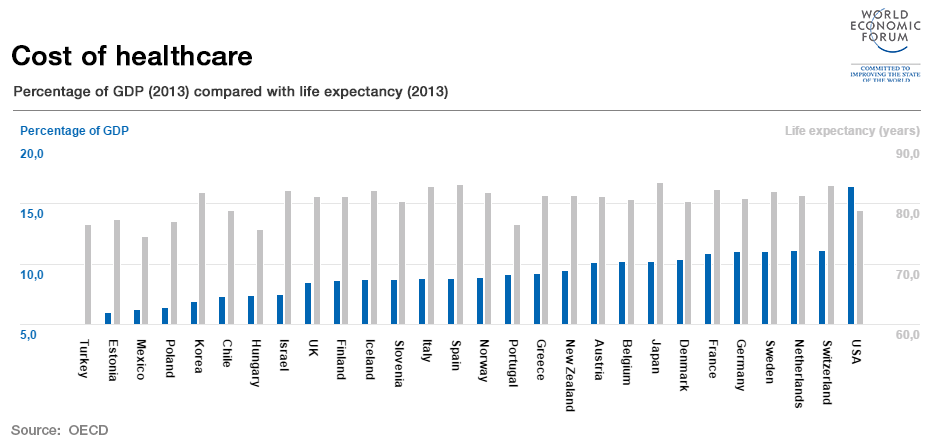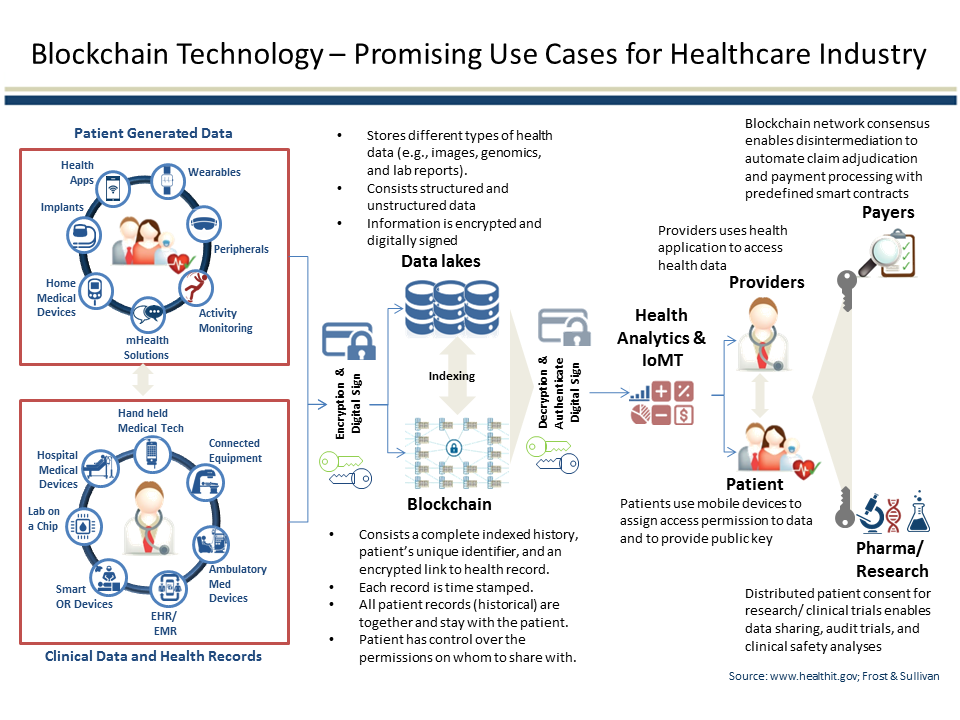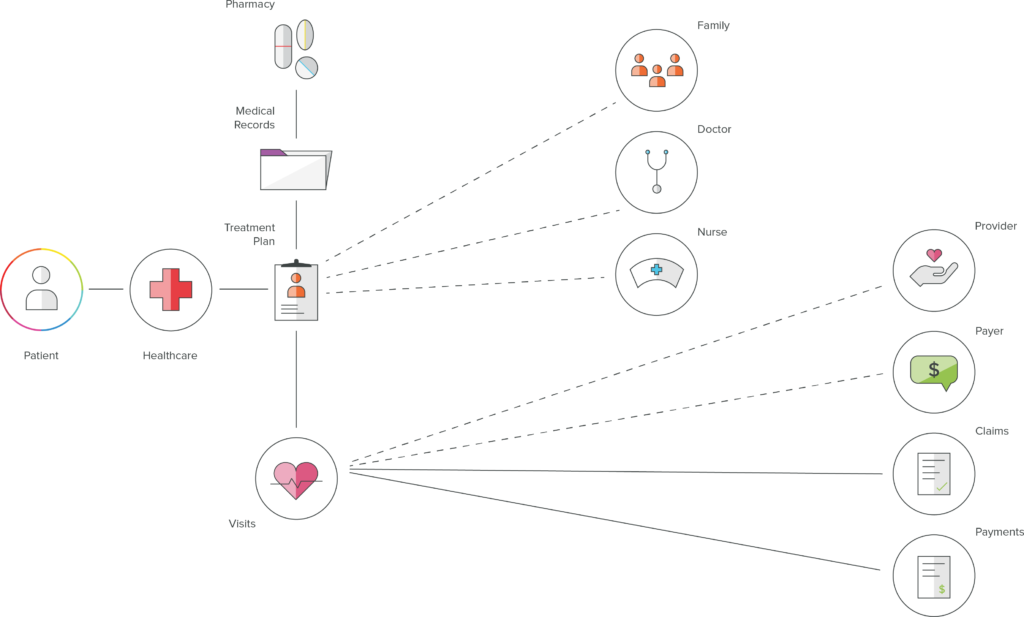It’s heartening when we see innovations being applied to something that matters - improve the lives of people. Although I would agree that this means different things to different people. To Silicon Valley guys, raising millions of dollars to create yet another rumor app is “world-changing” and other buzzwords marketing geeks throw around to spice up their mission statement. First World Problems?
A couple of days ago, I decided to start writing about real use cases behind the recent blockchain/crypto craze. And it’s been an interesting undertaking so far.
Almost at the same time Brave’s Basic Attention Token was making records with its ICO, Patientory was concluding its own too. Raising $7.2 million in three days. The Patientory app token was built to provide a unified platform for medical records.

Issues with The Current Health Care System
A nation’s quality of life depends on its’ health care sector. While many countries have gotten this setup in an efficient manner, it’s sad that several countries still have bad health care systems. It’s even more annoying when such countries are developed western countries who have billions of dollars as budgeted health expenditures. The case of US is an upsetting example.
In fact, the country is nowhere to be found in the top 10 list of developed countries with best healthcare systems. A quick Google search will provide you a myriad of problems rocking the health care system and judging from current happenings, things might get worse.
Of Highly Priced Drugs, Blatant Ripoffs And Wasted Expenditure
These are perhaps the biggest problems in the health care sector. In the case of US, there is so much spending for such an underwhelming sector. The chart below buttresses this fact:

A recent Jan 2017 OECD study revealed that the US among other countries wastes about 20% of their health-care expenditures. With millions of needy people, something urgent has to be done.
Pharmaceutical companies are most times left with no choice than to inflate the prices of drugs due to the bureaucratic expenses incurred. There are however those who do it excessively too. Remember Shkreli?
Saving lives should be treated with far more importance than profits.
Overworked Endangered Species
Why train lifesavers when there are weapons of mass destruction to be bought? A raise for training new doctors will not be approved but buying killer fighter jets is a no brainer.

^Demands far exceeds supply
What does this lead to? Higher waiting times for patients, lost working hours and overworked doctors who have more than enough to fill their plate. As if this is not enough, hospital management boards subject them to tasking records too.
Blockchain to the Rescue: Beyond A Fad
Like all other innovations, Bitcoin and its blockchain technology have been labeled with various terms. Fad, scam, Ponzi scheme, name them all. Now that it’s reaching wider adoption, it will be wrong to think that the Blockchain tech can only be adapted to the financial sector alone. The Linux Foundation aims to change this notion by encouraging the hyperledger project- a collaboration to advance blockchain application across various industries.
For the health care sector, there is the Hyperledger Healthcare Working Group consisting of companies like IBM, Accenture, and others. They are to encourage the development of working use cases of the blockchain to solve the various problems plaguing the health care system.
Why So much Focus on Data Records?
Literally, all efforts you see in the news about blockchain applications have been about data interoperability and security. As depicted by the Forbes illustration below, even governmental inquiries have mostly been focused on that:

Creating A Universal Source of truth
At first, six-figure dollars was being spent annually to make paper records of health care transactions leading to even more stress on the understaffed workforce. Over time, hospitals started implementing Electronic Record Systems to automate several of these task leading to a more productive workforce.
However, a huge problem arose from each hospital having customized EHRs: Creation of a firewall around patients' health information. While this was/still is beneficial to the profit-making hospital management boards, the casualties are the millions of patients seeking various treatment in many hospitals at the same time.
Each hospital treated its EHR as the single source of truth only relying on its collated data points. Patients who needed to use their personal health information to work with other doctors and specialists had no other choice that creating new records with them leading to higher charges.
Blockchain Tech Can Change This

Rather than having several centralized duplicated EHRs, Blockchain can provide a distributed, cryptographically secure ledger that records all patients’ information thereby making it available to all authorized parties.
Gem Health, HarmonIQ, and Tierion are some blockchain solutions aiming to create a universal data infrastructure.
Here’s a short video by Fortune showing a Gem executive talk about how blockchain is helping to save money and create a universal source of truth.
Reducing Medical Errors
Another reason why there is so much emphasis on having a decentralized EHRs is that it can help reduce the rate at which medical errors (poor tracking of surgeries outcome, wrong diagnostics et al) are made. It’s a huge problem! A recent study posits that ‘medical errors’ is now the 3rd leading cause of death in the US.
Having a platform that makes data exchange and tracking easy can help to substantially reduce these errors.
Patientory and Cybersecurity
Last month, a number of hospitals in the US, UK and a part of Spain were massively hit with the ransomware called Wannacry. Exploiting a bug, hospital operations were locked down by the attackers in exchange for a ransom of $300.
Because hospitals need timely information about a patient to perform surgeries, recommend drugs etc, they are easy targets of ransom wares as they are more likely to cave in quickly for fear of privacy violations and HIPAA compliance lawsuits.
Patientory unique blockchain app is here to solve that. Its’ HIPAA complaint blockchain based app help mitigate data breaches and provide a decentralized data architecture that is transparent and secure.
Other Use Cases –
Other startups are also trying to apply the beauty of blockchain to other healthcare sector niches like Billing Management, Drug Supply Chain, and Claims Adjudication
Conclusion
The Blockchain is a new technology in terms of mass adoption but it’s already providing immense solutions to age-long problems plaguing the healthcare industry.
Applying decentralization to the healthcare sector is without its own attendant challenges. However, it’s hoped that as more companies and governmental bodies devote attention and resources to the development of blockchain apps for the healthcare industry, things will get better and we can finally have a healthcare system citizens will be proud of.
Over to you
What’s your biggest pet peeve about your country’s healthcare system?
Sources:
1 – 2 – 3 – 4 – 5 – 6 – 7 – 8 - 9 – 10


